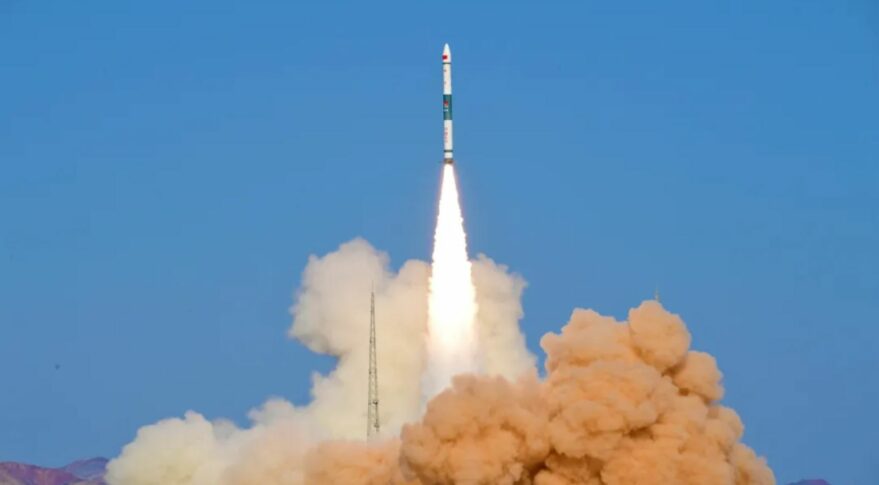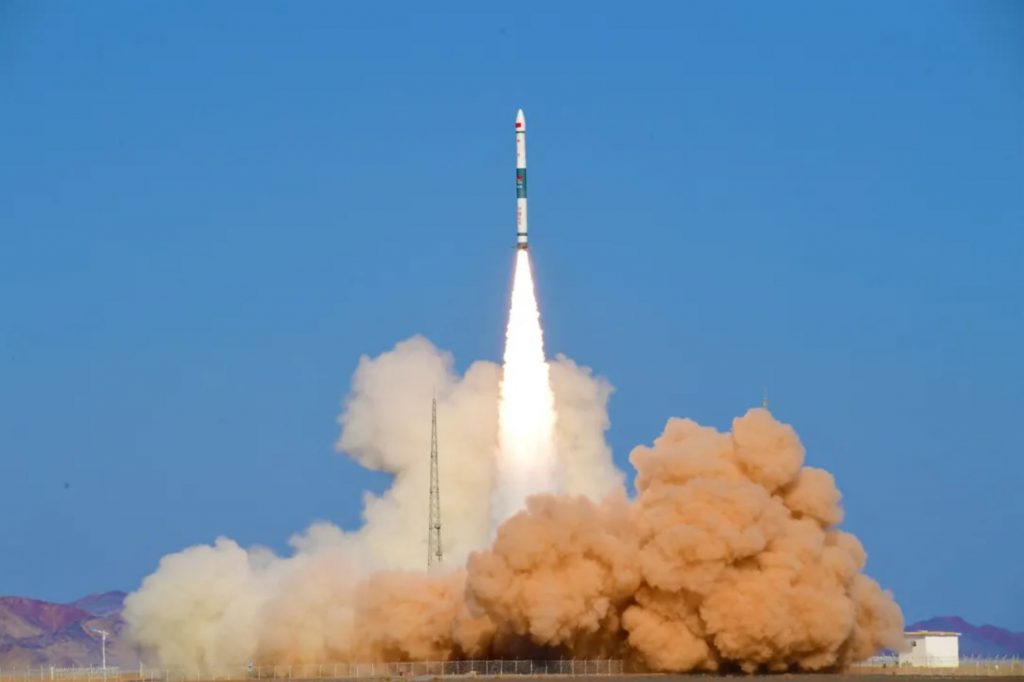
WASHINGTON – A new report by the Defense Intelligence Agency notes that the space fleets of China and Russia grew more than 70% in just over two years.
“This is evidence of both nations’ intent to undercut U.S. and allied global leadership in the space domain,” according to “Challenges to Security in Space 2022,” an unclassified report from DIA released April 12.
“China’s and Russia’s counterspace developments continue to mature, global space services proliferate, and orbital congestion has increased,” noted the report.
John Huth, defense intelligence officer for space and counterspace, told reporters at a Pentagon news conference that the report is intended to inform the general public about the stakes involved as the world becomes increasingly dependent on satellites and powers like China and Russia seek to challenge the United States in space.
“Challenges to Security in Space” was first published in early 2019 and focused on China and Russia. The 2022 edition discusses the space capabilities of North Korea and Iran.
The new report was completed before Russia’s invasion of Ukraine and does not address the impact of the conflict on Russia’s space industry. Most of the information in the report was drawn from published research and news articles.
Kevin Ryder, senior defense intelligence analyst for space and counterspace, said China’s and Russia’s interest in exploring the moon and Mars should be viewed as national security concerns because these nations have not been transparent about their intentions.
China has built its military strategy on the assumption that the United States is hugely dependent on space capabilities and losing access to them would cripple the U.S. military. According to DIA, China’s military leadership “probably sees counterspace operations as a means to deter and counter a U.S. intervention during a regional military conflict.”
The Chinese military believes that destroying U.S. and allies’ space assets like GPS, communications and missile-warning satellites would make it difficult for the U.S. and allied militaries to use precision-guided weapons and would essentially leave U.S. forces “blind and deaf,” said DIA.
Russia also perceives the U.S. dependence on space as its Achilles’ heel, the report said, which has motivated Russia to pursue counterspace systems.
DIA included a section in the report on the dangers of orbital debris.
“The probability of collision between massive derelict objects in low Earth orbit is rising and almost certainly will continue to rise until at least 2030 as a result of fragmentation events such as collisions or battery explosions, anti-satellite testing, and a rapidly increasing number of space launches worldwide,” the report said. “The collision risk is to all civilian, commercial, and government satellites of all nations. This adds to the difficulty of ensuring safe space operations and the overall stability of the space environment.”

